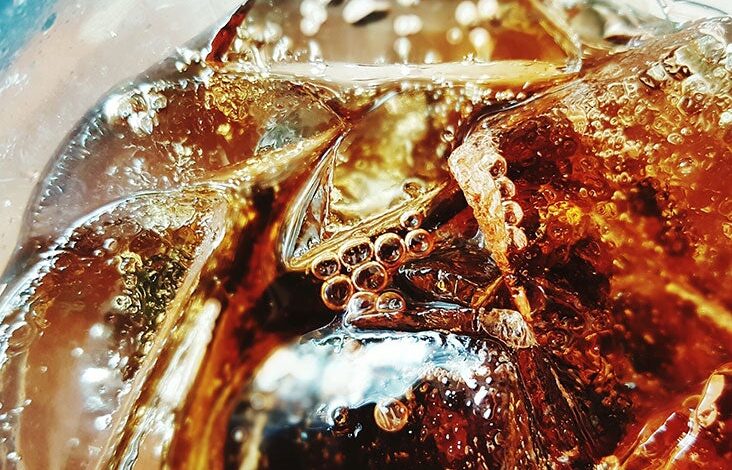Artificial sweetener aspartame linked to anxiety, mice study finds

- A new study finds that the consumption of aspartame, a widely used artificial sweetener, produces anxiety-like behavior in mice, along with epigenetic changes in the amygdala.
- These changes persisted for up to two subsequent generations.
- The study’s findings point to follow-up research regarding aspartame and anxiety in humans.
Aspartame is a widely consumed artificial sweetener found in thousands of drinks and food products globally. A great deal of research has investigated its safety and effects.
A new study from researchers at Florida State University investigates the potential effect of aspartame on anxiety.
The researchers found that mice that consumed aspartame began exhibiting anxiety-like behavior afterward and experienced changes in the expression of genes in the amygdala.
The amygdala is a part of the brain associated with regulating anxiety and fear. The researchers found that the drug diazepam could successfully alleviate anxiety.
The study also found that changes in the amygdala persisted for up to two subsequent generations through males, as did the effectiveness of diazepam in relieving anxiety.
The study appears in the journal PNAS.
According to the
Aspartame was
After being approved as a food additive, commercial production of aspartame — and its use in diet products — began in 1981. According to the new study’s authors, annual production of aspartame is 3,000 to 5,000 metric tons worldwide.
In the United States, aspartame is marketed as Equal, Nutrasweet, and Sugar Twin. While it is also an ingredient in many food products, aspartame is often consumed in diet sodas.
These include Diet Coke, Diet Pepsi, Diet Dr. Pepper, and other beverages produced by their companies.
A 2017 study found that 25.1% of children and 41.4% of adults in the U.S. reported using low calorie sweeteners.
The FDA recommends a daily intake of aspartame of no greater than 50 milligrams for each kilogram of body weight.
A packet or sachet of Equal contains about 37 milligrams of aspartame. A 12-ounce can of diet soda contains around 200 milligrams.
Anxiety in mice was the result of consuming the equivalent of just 15% of the FDA’s maximum recommendation.
The new study’s senior investigator, Dr.Pradeep G. Bhide, director of the Center for Brain Repair at Florida State University in Tallahassee, FL, told Medical News Today:
“The amount of aspartame consumed by the mice in our study was representative of the amount consumed by some individuals: two to four small, 8-ounce cans of aspartame-sweetened diet soda per day.”
Dr. Bhide explained that their “lab is interested in examining how environmental exposures influence traits — behavioral, cellular, molecular, etc. — not only in the directly exposed individuals but also in their descendants.”
After determining that nicotine and the artificial sweetener saccharin produce heritable behavioral effects, the researchers turned their attention to an even more popular sweetener than saccharin: aspartame.
Dr. Bhide noted that “[a]nxiety-like behavior is among the first behaviors that neuroscientists examine in their experimental animal models because if present, it can influence the outcome from other behavioral tests that may be performed.”
He added that some other studies had reported aspartame producing anxiety in animal models.
The study’s male and female mice received aspartame in drinking water.
To assess their anxiety levels, researchers gave the mice an open-field test. In this test, anxious mice tend to stay on the sidelines, where they may feel safer when allowed free access to an open field. The amount of time spent in the central area thus measures their anxiety level.
The strong anxiety-producing effect of aspartame “was definitely an unexpected finding,” lead author Sara K. Jones told MNT.
“The anxiety appeared to be robust,” said Dr. Bhide, “and I would not rule out that smaller amounts… could produce anxiety in mice and men, if consumed daily over a period of several — 6 to 12 — weeks.“
“These findings do make me think twice before consuming Diet Coke or other products containing aspartame,” Jones admitted.
The researchers found that changes to the amygdala — and the response to diazepam — were retained in the male mice exposed to aspartame and in their offspring.
“Epigenetic changes produced by aspartame or other environmental influences in germ cells,” said Dr. Bhide, “are believed to mediate transfer of the epigenetic changes to somatic cells — e.g., brain, liver, heart, etc. — and germ cells — egg and sperm — of the descendants in the next generation.”
If such a change is inflicted on just one generation, over time, “the heritable epigenetic changes and traits would dilute — or attenuate — with each successive generation and eventually disappear,” said Dr. Bhide.
Dr. Bhide cautioned that “our data from mice suggest that similar outcomes may obtain in humans. Studies in human subjects would be needed to verify this suggestion.”
Still, he cited research reporting that cigarette smoking by fathers at conception may have a behavioral effect on the smokers’ children.
“It would be interesting,” said Jones, “to see if aspartame’s effects can be passed down to further generations beyond the grandchildren of the exposed individual. Additionally, it would be interesting to conduct studies on the sperm, to better understand the mechanism underlying the findings.”
Get Best News and Web Services here







